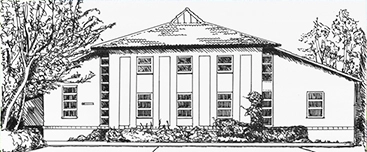We use cookies to help provide you with the best possible online experience.
By using this site, you agree that we may store and access cookies on your device. Cookie policy.
Cookie settings.
Functional Cookies
Functional Cookies are enabled by default at all times so that we can save your preferences for cookie settings and ensure site works and delivers best experience.
3rd Party Cookies
This website uses Google Analytics to collect anonymous information such as the number of visitors to the site, and the most popular pages.
Keeping this cookie enabled helps us to improve our website.
Medicine sick day guidance
Taking certain medicines when you are dehydrated or very unwell can result in you developing a more serious illness. This is because they can increase the risk of dehydration and lead to potentially serious side effects. This is known as Medicine Sick Day Rules. These medicines should be temporarily stopped if you are at risk of becoming dehydrated with any of the following:
- Vomiting or diarrhoea (unless only minor)
- Fevers, sweats or shaking
You can restart the medication after 24 to 48 hours of eating and drinking normally. Do not take extra for missed doses.
Which medications should I stop?
- ACE inhibitors: names ending in ‘pril’ - examples: lisinopril, perindopril, ramipril
- a medicine for high blood pressure and heart conditions. If you are dehydrated, these medicines can stop your kidneys working properly.
- ARBs: names ending in ‘sartan’ - examples: losartan, candesartan, valsartan
- a medicine for high blood pressure and heart conditions. If you are dehydrated, these medicines can stop your kidneys working properly.
- Diuretics: sometimes called ‘water pills’ - examples: furosemide, bendroflumethiazide, indapamide, spironolactone
- Used for excess fluid and high blood pressure. These medicines can make dehydration more likely.
- NSAIDs: anti-inflammatory pain killers - examples: ibuprofen, naproxen, diclofenac
- If you are dehydrated, these medicines can stop your kidneys working properly.
- Metformin: a medicine for diabetes.
- Dehydration can make it more likely that you will develop a serious side effect called lactic acidosis.
- SGLT2 inhibitors: names ending in ‘flozin’ - examples: canagliflozin, dapagliflozin, empagliflozin, ertugliflozin
- A medication used in the treatment of Diabetes, Kidney disease or Heart Failure. These medicines can make dehydration more likely and if you have diabetes can cause acid to build up if you are unwell.
Which illnesses cause dehydration?
Dehydration is the loss of fluid from your body. Vomiting, diarrhoea, and fever (high temperature, sweats, shaking) can make you dehydrated. If you are sick once or have diarrhoea once, then you are unlikely to become dehydrated. Having two or more episodes of vomiting or diarrhoea can lead to dehydration: in these cases, you should consider following this advice.
What actions should I take?
If you develop a dehydrating illness, you should temporarily stop taking any medicine listed here, and any other medicine identified by your health professional. It is very important that you restart your medicine once you have recovered from the illness. This would normally be after 24 to 48 hours of eating and drinking normally. When you restart your medicine, just take them as normal. Do not take extra for the doses you have missed.

